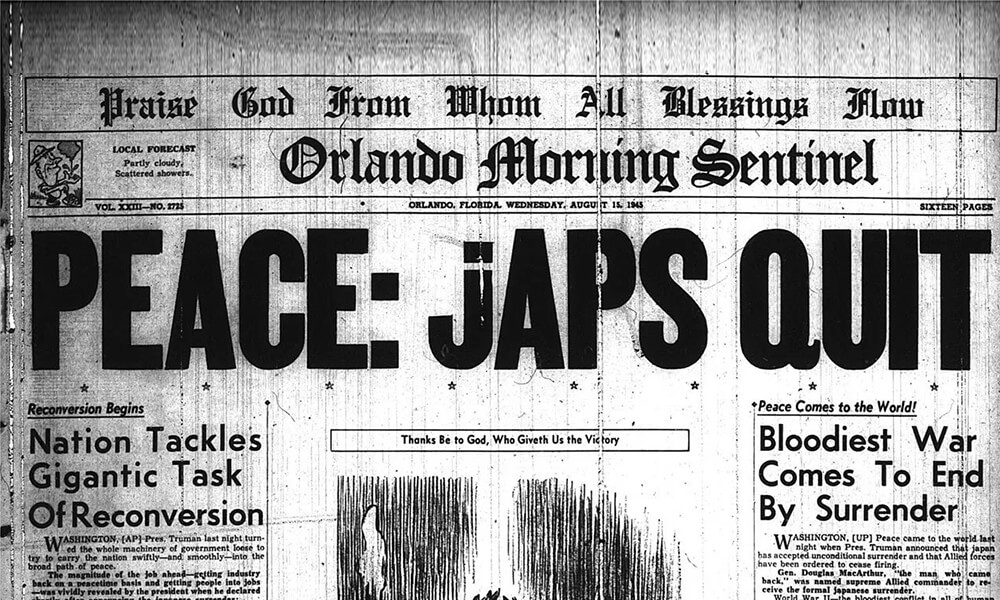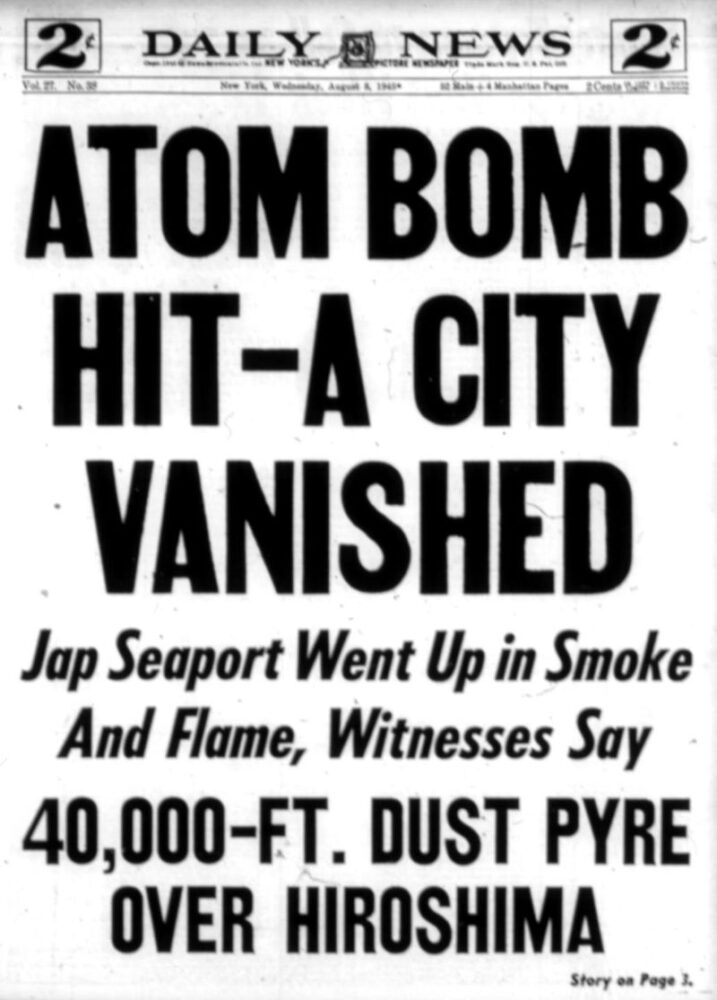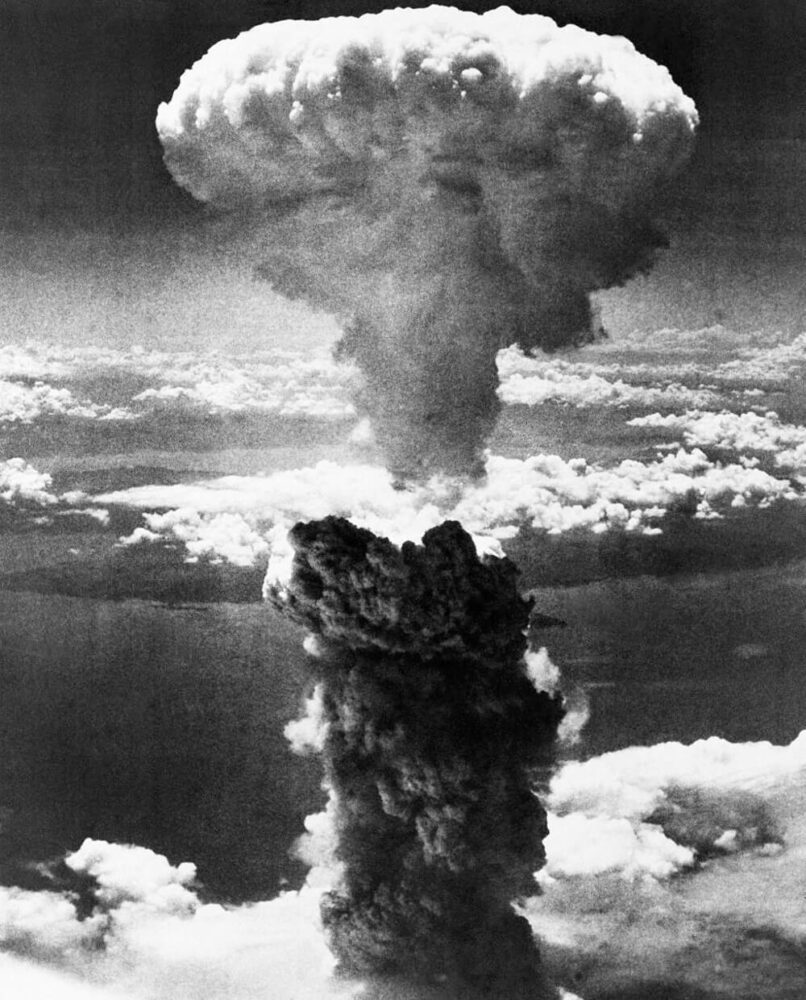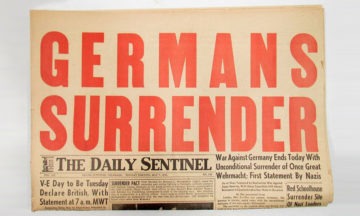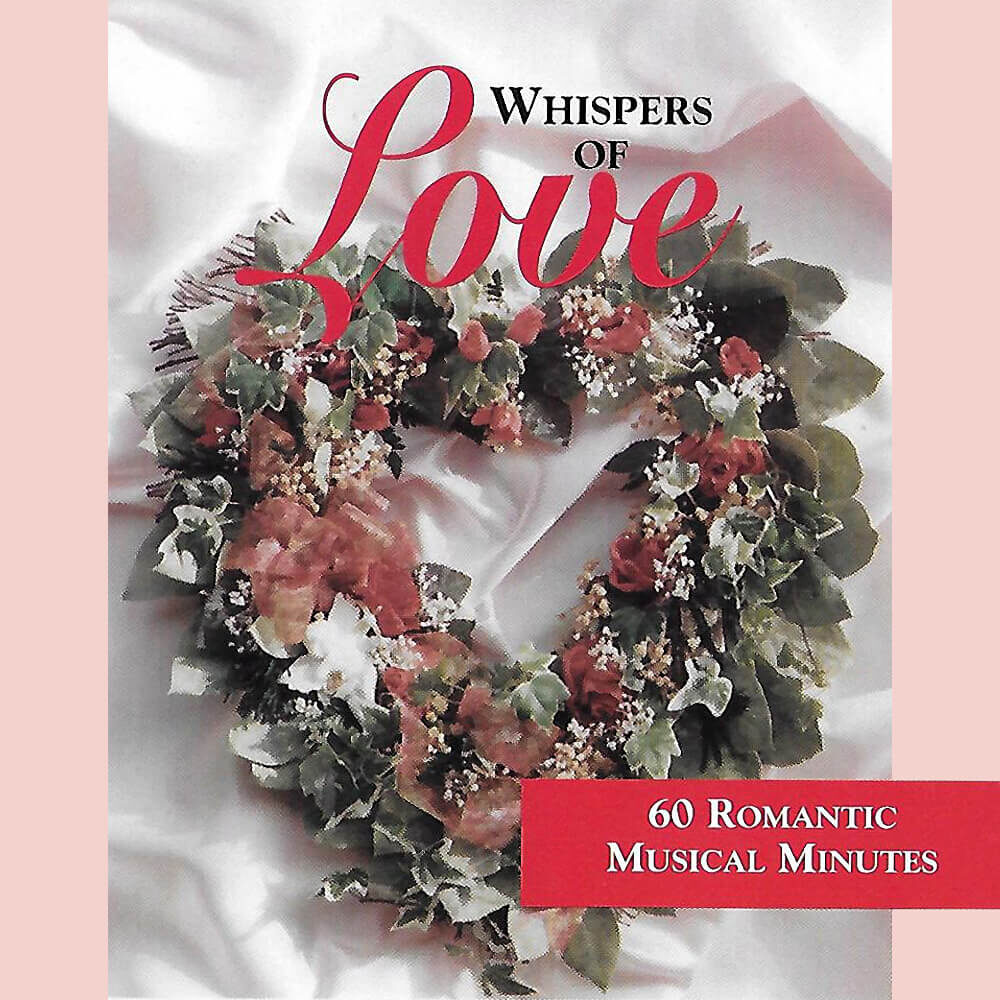The date was August 14, 1945 … while I knew a war was going on and that the man who would become my step-father within a couple of years was off serving in the U. S. Navy … my first visual recognition of the war ending was on the evening of this day. Suddenly, cars were driving up and down the main road in this still fairly rural at the time of Bucks County, Pennsylvania. The main road separated our home from the Reading Railroad line which ran from Philadelphia to Trenton, New Jersey. These automobiles weren’t just rolling past, their horns were blowing and people were hanging out the windows waving American flags!
It was V-J Day, and I was witnessing everyone celebrating that finally, the Second World War was coming to its end. At the time, I was on the verge of my 10th birthday … and this image still is implanted in my mind’s hard drive.
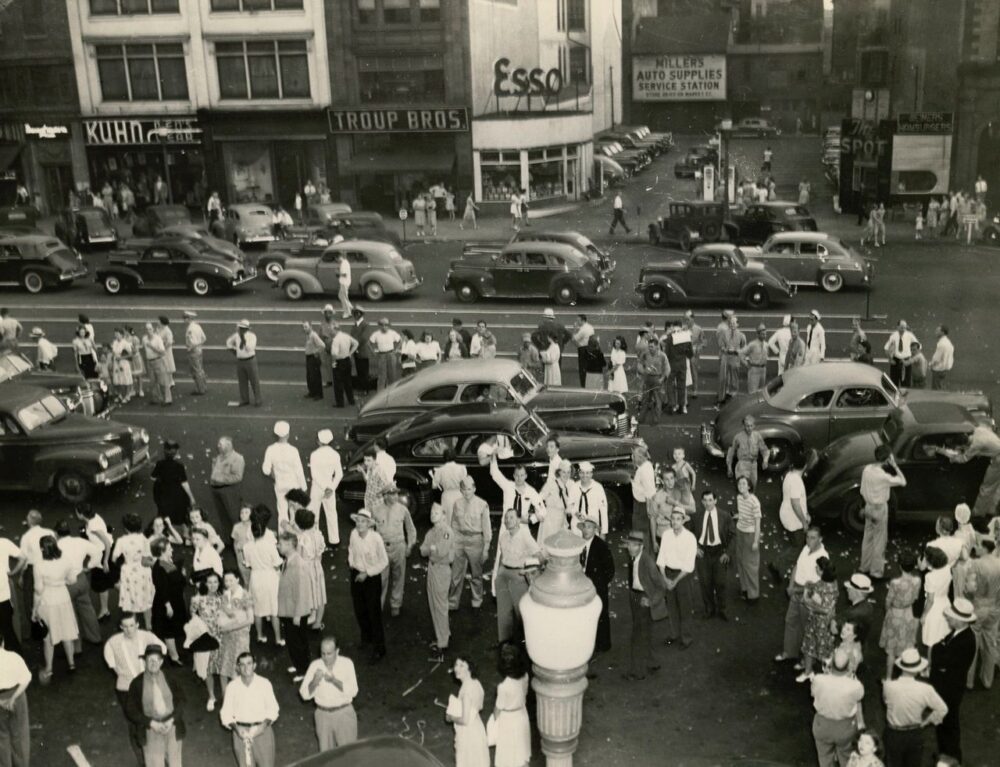
A lot of history books confuse many by writing that the War ended on September 2nd, making no reference of August 14th. From a legal standpoint this is correct … as September 2nd is when Allied Supreme Commander, General Douglas MacArthur, and representatives of nations and parties involved gathered on the deck of the U. S. S. Missouri to sign the official surrender documents. However, August 14th is when Japan agreed to unconditional surrender terms and the cessation of fighting.
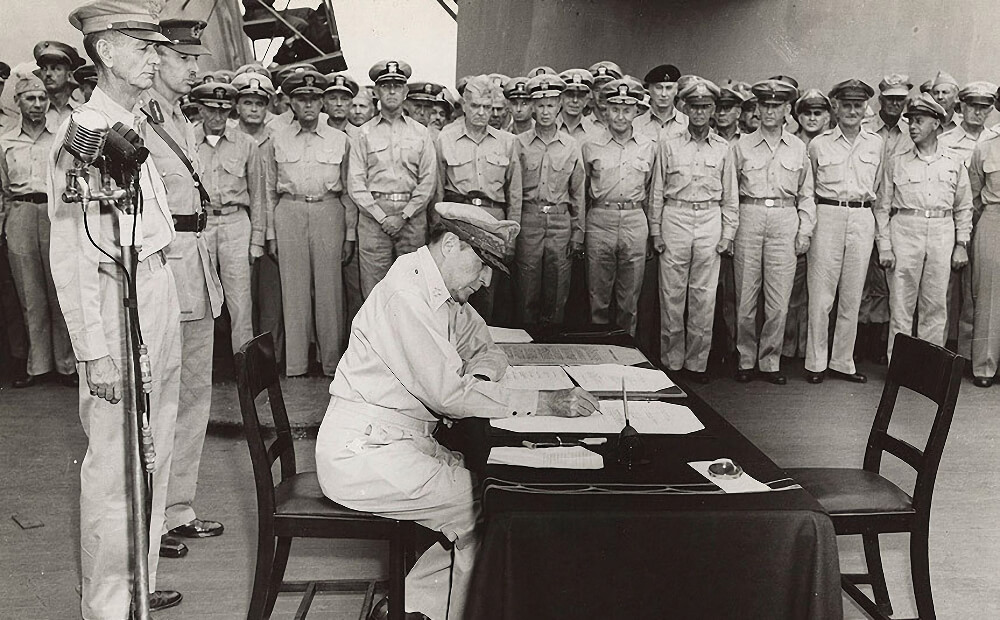
As far back as mid-July the Allies were proposing — or should we say demanding — that the Japanese agree to surrender. At first the Japanese totally rejected then began to counter with a proposal much like the way World War One ended, an “armistance” … amounting to not much more than a truce with the Allies agreeing to stop attacking Japan.
Meanwhile, unbeknownst to the Japanese, President Harry Truman was debating the pros and cons of using the most powerful destructive bomb ever created by man to bring the opposition to their knees and end the conflict.
If the newly-developed atomic bomb weren’t to be used, the military had begun amassing forces totaling hundreds of thousands of troops in preparation for an invasion of the Japanese mainland in November of that year. In case this did not prove to be enough, an additional one-million-man fighting force made up of men from the U. S. plus Allied nations such as Australia, Britain and the Soviet Union would soon follow.
These huge numbers stem from military strategists belief that, with the Japanese culture at the time being “win or die” (think “kamikaze pilots“) as the only option in battle, we could suffer hundreds of thousands of casualties before winning. This was certainly a major factor in President Truman’s mind as he weighed the options. Then, he made the call … drop the bomb on the city of Hiroshima, which occurred on August 6th.
Even with its nearly total annihilation of the city, the enemy was not ready to give in … hoping there’d still be a way to end the fighting without totally giving up control of their land. After waiting three days for a surrender agreement to be forthcoming, a second bomb was dropped on the city of Nagasaki. This came just as the Soviet Union entered into the fray with a declaration of war on Japan.
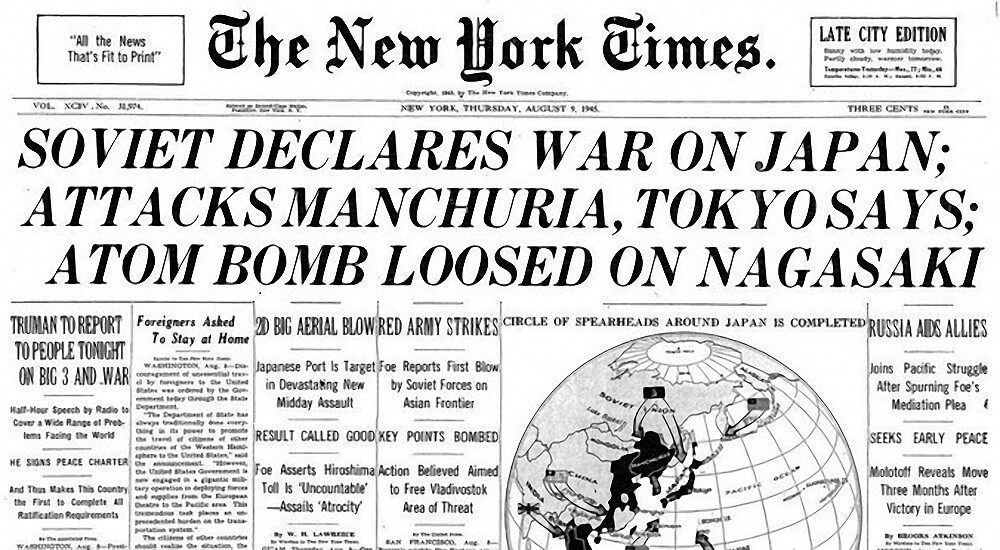
The next day, the 10th, Japan offered to surrender … if the Emperor were allowed to remain as the nominal head of state. On the 12th, the United States replied that it would accept the Japanese surrender while making it clear that the emperor could remain, but would be as strictly a ceremonial figurehead … that all functions of the Japanese government would be subject to orders from “the Supreme Commander of the Allied Powers.” Meanwhile, American leaders were becoming impatient with the Japanese dawdling in confirmation of total surrender, so conventional bombing raids were resumed.
Finally, Emperor Hirohito went on the radio, in a broadcast heard throughout the nation, to announce the surrender, explaining that “the war situation has developed not necessarily to Japan’s advantage,” and that peace was preferable to further destruction.
Following that announcement, it was time for the entire world to celebrate and be thankful that the fighting and bloodshed was ending … V-J Day had finally arrived … on August 14, 1945!
Image Credits: "Japs Quit" newspaper Courtesy: Orange County Library System, Harrisburg celebrates V-J Day, Aug. 14, 1945. (From The Patriot-News archives), Photo of Gen. Douglas MacArthur signs documents during the surrender ceremony aboard USS Missouri that ended World War II on Sept. 2, 1945. Courtesy of U.S. ARMY, Photo newspaper headline "A-Bomb Hit" courtesy of New York News, Photo: Atomic Cloud Rises Over Nagasaki, Japan courtesy of U.S. National Archives and Records Administration via Wikipedia, Photo "Soviet Union Declares War on Japan" courtest of New York Times Archives
